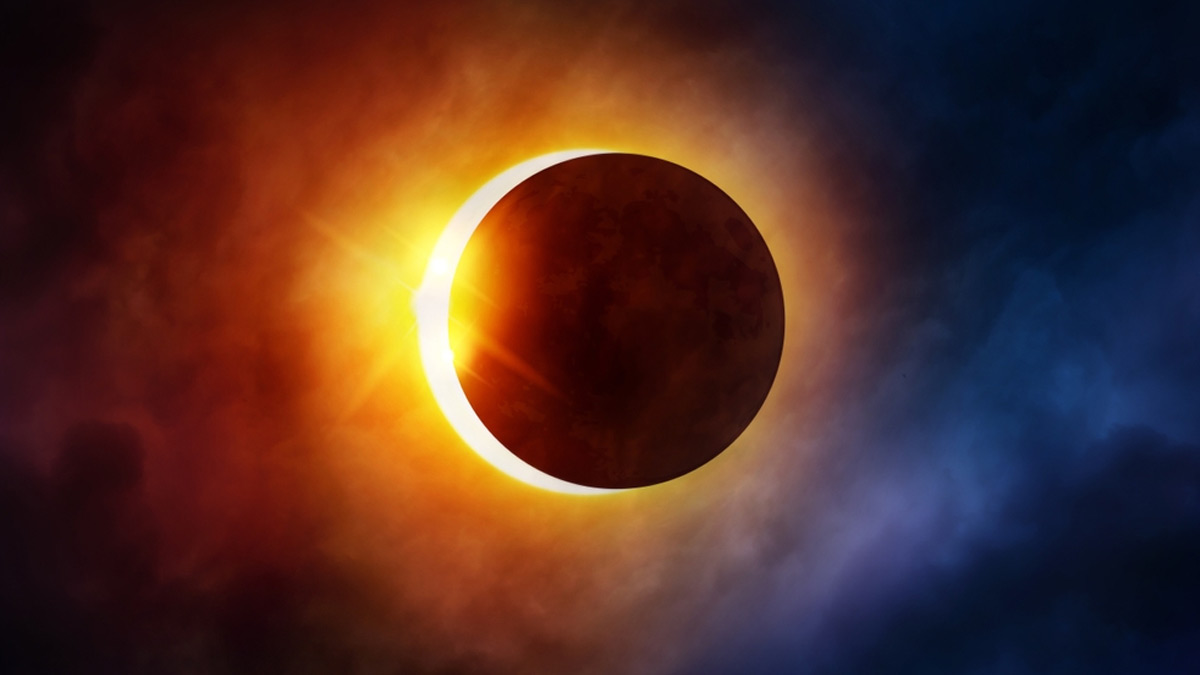
Amid the excitement surrounding the upcoming solar eclipse, a false message has been circulating, sparking unnecessary panic among the public. The message wrongly suggests that cosmic rays will pass close to Earth, urging people to switch off their mobile phones at midnight.
Table of Content:-
The message advises people to power off their electronic devices, such as phones and tablets, and keep them away from their bodies between 12:30 AM-3:30 AM. It claims that the planet will be exposed to extremely high radiation levels, potentially causing severe harm to the body. This misinformation coincides with the occurrence of the first solar eclipse of the year, slated to begin at 09:12 PM today and extend until 2:22 AM on April 9th.
However, this viral message is unfounded, as we are shielded from various hazardous radiations, including solar radiation, by Earth's thick atmosphere.
Also Read: What Are The Side Effects Of Radiation Therapy? Know From An Expert

What Is Cosmic Radiation?
According to the Centers for Disease Control and Prevention, cosmic radiation encompasses energetic charged particles, as well as X-rays and gamma rays generated within space. These charged particles interact with the Earth's atmosphere, giving rise to secondary radiation that ultimately reaches the Earth's surface.
Exposure to cosmic radiation parallels the radiation exposure experienced during a typical medical X-ray. In the United States, the average annual dose from cosmic radiation stands at 0.34 mSv (34 mrem) per year. This relatively low dose of radiation is improbable to have any adverse effects on human health.
Can Solar Eclipse Affect Your Health?
As per a 2017 publication by NASA, the organisation has dispelled numerous myths, such as the notion that pregnant individuals must refrain from observing an eclipse or that being born close to a solar eclipse signifies poor health. These assertions are categorically untrue. NASA stresses that, in general, there's little cause for health-related worries concerning solar eclipses.
NASA asserts that there's no direct correlation between a total solar eclipse and one's health. From a physical standpoint, the primary concern revolves around protecting your eyes. While looking directly at the eclipse won't cause blindness, it can lead to retinal damage.
Also Read: Solar Eclipse Can Hurt Your Eyes. Here’s How To Safely Watch The ‘Ring Of Fire’
Impact Of Solar Eclipse On Eye Health
Dr Dilip Gude, Senior Consultant Physician, Yashoda Hospitals, Hyderabad highlighted, “It isn't safe to view a solar eclipse for longer than a few seconds. There is no radiation-induced blindness although watching with the naked eye for longer periods can cause irreversible retinal damage that can occur resulting in permanent blindness.”
“Specialised protective eyewear/welding glasses with strength above 14, can help mitigate eye damage. Moreover, the sun's rays are not more powerful during an eclipse and the usual SPF lotion that is applied 50 or more works during an eclipse”, added Dr Gude.
Myths Surrounding Solar Eclipse
Dr Gude debunked myths surrounding solar eclipse and listed the facts as follows:
- Drinking water, and sleeping during a solar eclipse are reasonably safe.
- Pregnant women are not affected by solar eclipse, unlike most myths state.
- No power supply disruption may occur during a solar eclipse as some people erroneously think. Flowers planted during the eclipse neither will have bright colours nor will wilt/die.
- Neither food gets spoiled during it nor is eclipse a bad omen.
- Psychologically there may be irrational fears and feelings of impending doom which usually can be solved with adequate counselling.
[Disclaimer: This article contains information provided by the expert and is for informational purposes only. Hence, we advise you to consult your expert if you notice any health complications to get the necessary treatment.]
Also watch this video
How we keep this article up to date:
We work with experts and keep a close eye on the latest in health and wellness. Whenever there is a new research or helpful information, we update our articles with accurate and useful advice.
Current Version